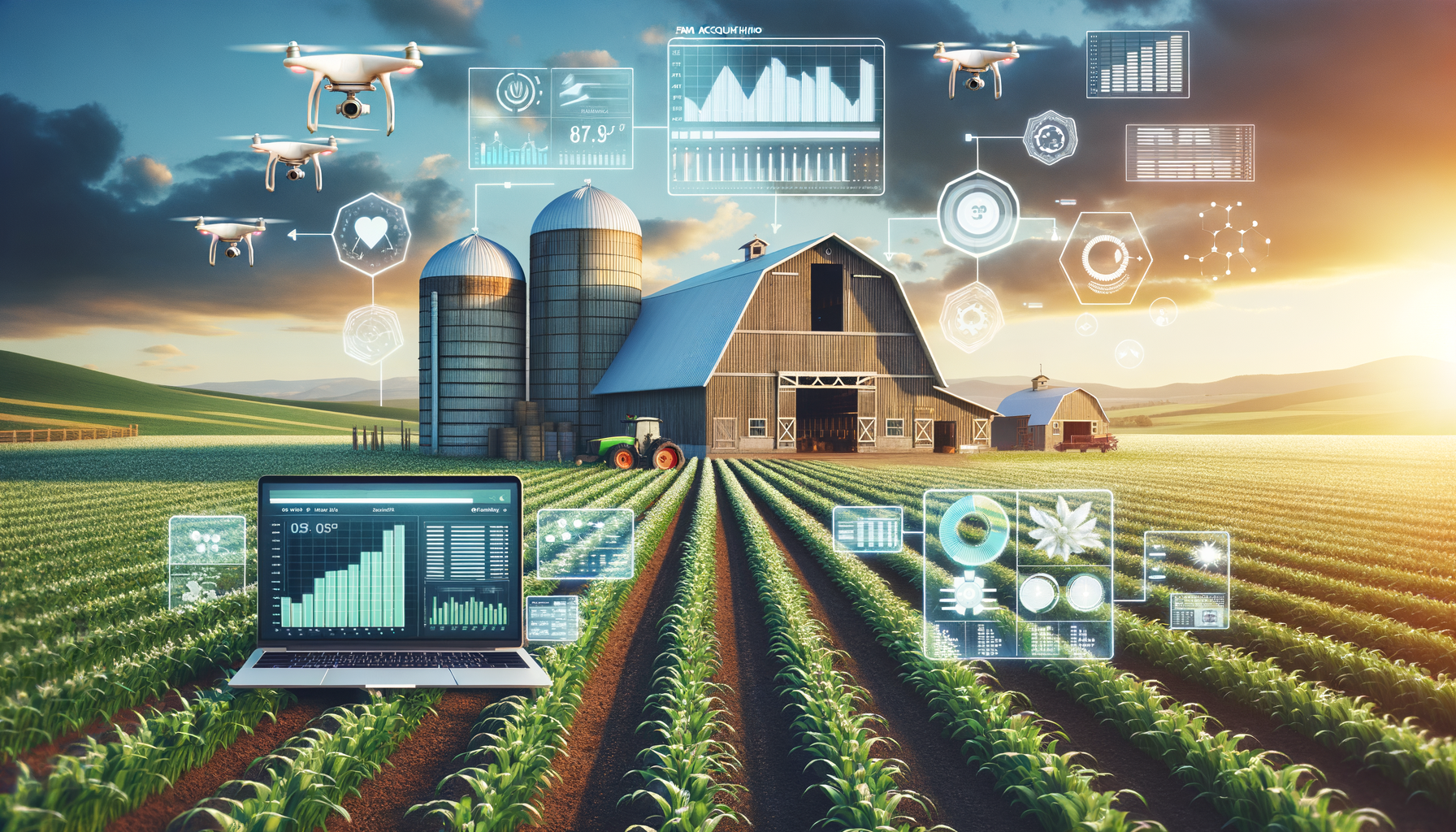The Role of Farm Accounting Software
Farm accounting software plays a crucial role in modern agriculture by providing tools that cater to the unique financial management needs of farms. Unlike traditional accounting systems, these specialized programs are designed to handle the complexities of agricultural operations. From monitoring crop production costs to managing livestock expenses, farm accounting software helps streamline financial processes, making it easier for farmers to focus on their core activities.
One of the primary benefits of using farm accounting software is its ability to track sales and expenses efficiently. With features that allow for real-time data entry and analysis, farmers can quickly assess their financial standing. This capability is particularly important in agriculture, where market conditions can change rapidly, affecting pricing and profitability.
Moreover, farm accounting software often includes modules for handling payroll and taxes, which are integral to running a farm. By automating these functions, the software reduces the risk of human error and ensures compliance with financial regulations. This automation not only saves time but also improves the accuracy of financial reporting, which is critical for making informed business decisions.
Enhancing Efficiency and Accuracy
Efficiency and accuracy are paramount in farm management, and accounting software contributes significantly to these aspects. By centralizing financial data, the software eliminates the need for manual record-keeping, which can be both time-consuming and prone to errors. Automated data entry and processing ensure that financial records are up-to-date and accurate, providing a reliable basis for decision-making.
Farm accounting software also supports budgeting and forecasting, which are essential for planning future operations. By analyzing historical data, farmers can predict trends and make strategic decisions to optimize resource allocation. This predictive capability is invaluable for managing risks associated with weather patterns, market fluctuations, and other external factors that impact farm productivity.
Additionally, the software’s ability to generate detailed financial reports enhances transparency and accountability. Farmers can easily track income and expenses, monitor cash flow, and assess the financial health of their operations. This level of insight is crucial for identifying areas of improvement and implementing cost-saving measures.
Customization and Scalability
Farm accounting software is designed with customization and scalability in mind, allowing it to adapt to the diverse needs of different farming operations. Whether managing a small family farm or a large commercial enterprise, farmers can tailor the software to suit their specific requirements. This flexibility is achieved through customizable modules and features that can be adjusted as the farm grows and evolves.
Scalability is another significant advantage, as it ensures that the software can accommodate increasing data volumes and more complex financial transactions. As farms expand, the software can be upgraded to include additional functionalities, such as inventory management, equipment tracking, and supply chain integration. This adaptability ensures that the software remains relevant and useful, regardless of the farm’s size or scope.
Furthermore, many farm accounting software solutions offer integration with other agricultural technologies, such as precision farming tools and IoT devices. This integration enhances data accuracy and provides a comprehensive view of farm operations, enabling farmers to make data-driven decisions that improve efficiency and productivity.
Choosing the Right Farm Accounting Software
Selecting the appropriate farm accounting software is a critical decision that can have a lasting impact on a farm’s financial management. Several factors should be considered when choosing a software solution, including ease of use, cost, and the specific features offered.
Ease of use is particularly important, as the software should be intuitive and accessible to farmers with varying levels of technical expertise. A user-friendly interface and comprehensive support resources can significantly enhance the user experience, ensuring that farmers can maximize the software’s potential.
Cost is another consideration, as farm accounting software is available at various price points. It’s essential to evaluate the software’s value in terms of the benefits it offers and the potential return on investment. Some software providers offer tiered pricing plans, allowing farmers to select a package that aligns with their budget and operational needs.
Finally, farmers should assess the specific features and capabilities of the software to ensure it meets their unique requirements. Key features to look for include real-time data tracking, integration with other farm management systems, and robust reporting tools. By carefully evaluating these factors, farmers can choose a software solution that supports their financial goals and enhances overall farm management.
Future Trends in Farm Accounting Software
The future of farm accounting software is shaped by technological advancements and evolving agricultural practices. One trend is the increasing use of cloud-based solutions, which offer greater accessibility and flexibility. Cloud-based software allows farmers to access their financial data from anywhere, facilitating remote management and collaboration.
Another trend is the integration of artificial intelligence (AI) and machine learning technologies. These innovations enable more sophisticated data analysis and predictive modeling, providing farmers with deeper insights into their operations. AI-powered tools can identify patterns and trends that may not be immediately apparent, helping farmers make proactive decisions to enhance productivity and profitability.
Moreover, the rise of mobile applications is transforming how farmers interact with accounting software. Mobile apps provide on-the-go access to financial data, allowing farmers to manage their accounts and perform transactions directly from their smartphones or tablets. This convenience is particularly valuable in agriculture, where farmers often work in the field and require immediate access to information.
As technology continues to evolve, farm accounting software will likely incorporate more advanced features and capabilities, further enhancing its value to farmers. By staying abreast of these trends, farmers can leverage cutting-edge tools to improve their financial management and achieve long-term success.




Leave a Reply